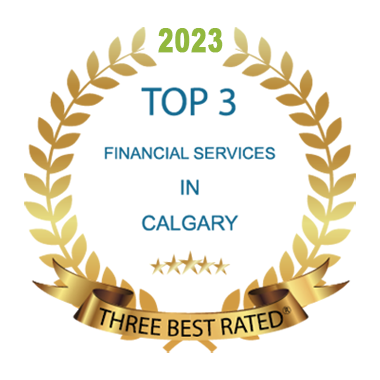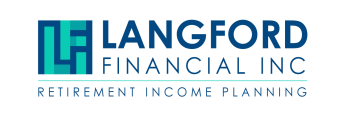If all investments were the same then fees would be important. But, not all investments are the same.
If you are looking to buy gasoline for your car you would naturally buy it from the station offering it at the lowest price, because you believe, as most people do, that all gasoline is the same.
If you were looking to replace the hot water tank in your home you would have a similar process. For many of the services we require from day to day we make our choice based on price and maybe, sometimes on overall value. The only other differentiators are things like faster service, a better quality product or a loyalty program of some sort.
When it comes to investing, can you use similar metrics?
There's a lot of mystery surrounding investing. There's a lot of noise from investment firms trying to get your attention. You need to eductate yourself to be able to make an informed decision.
There are 3 categories of investors:
1. Do it Yourself.
This person attempts to manage their own portfolio and choose the best investments with the hopes of beating the market and getting good results. There is no shortage of websites and gurus to help you do this. In our experience, we have only met three people that have succeeded with this approach. Most of the DIY portfolios we see are a dismal failure. There's an overconcentration on oil and gas stocks and Canadian dividend payers. Most DIY'ers do not know how to diversify or how to tap into other markets outside of Canada.
It's not uncommon to see portfolios where a person has lost 50% of their original value and sometimes more.
Some Advantages:
- Cheaper cost of transactions
- You are in control
- You can make faster decisions
Disadvantages:
- You have to commit so much time. 10-15 hours per week
- You have to stay up to date with the macro and micro economic trends
- You have to be doing constant research
- You tend to be chasing hot stock tips to make a quick buck
- Fall victim to overconfidence and then panic moves
- The biggest problem is deciding when to buy and sell - for the right reasons
I think it is possible for someone to succeed as a DIYer if they are prepared to do all of the work
2. Investments at the bank and all over the place:
This category represents the majority of Canadians. They have had several jobs over the years and participated in the pension plan or group RRSP. AS they have moved from job to job they can end up with 3 or 4 plans spread between Manulife, Sun Life, Great-West Life, and maybe one other firm they have never heard of before. In addition to this, they opened an RRSP and a TFSA at their local bank.
Some advantages:
- You were able to receive free money from your employers in the form of a match
- The funds can be low cost
- You didn't have a lot of choices to make
- Most of the funds have performed OK
Disadvantages:
- Some of the funds have not performed very well. Mainly due to the inability to choose and lack of attention.
- As you move on from job to job these plans get forgoten about and before long, many years pass by with no update and you realized you have suffered from low investment returns.
- Once you move employers how do you access your account to make changes?
These plans are a great idea and you can benefit greatly from the generous matching programs from your employer, but you still need some knowledge on making investment selections and managing your accounts as you move employers.
3. Working with a professional.
Many people conclude that trying to figure this stuff out on their own is more work than it's worth so they choose to work with an investment advisor at their local bank, firm or a private investment firm like IG Wealth, Edward Jones, Richardson GMP or someplace similar. This is a more hands-off approach and the people who choose this would rather focus their attention on making money doing what they know best and leave the management of investments to the professionals.
Some Advantages:
- It frees up your time to do what your good at.
- You have access to a much broader range of investments.
- You get proper diversification, bit by sector and geography.
- You get planning and advice included.
Some Disadvantges:
- You will pay a higher investment fee for this service.
- You need a higher account value, otherwise, you don't get the attention you need.
- Advisors leave and you end up with a new person every few years.
Conclusion
I have reviewed hundreds of portfolios and have noticed that 'do it yourselfers' usually make a ton of planning mistakes, especially around tax issues, and have the worst long-term returns. They keep the losers too long and sell the winners too soon.
Those who work with a qualified investment advisor tend to do the best, however, they end up in our office because the investment advisor doesn't provide any planning and advice.
Those with their stuff at the bank and all over the place tend to underperform, but at the same time, they at least make some money - mainly due to the fact that they just left it alone and did not try to tinker with it too much.
Here are some tips for choosing the right approach for you:
1. How involved do you want to be with your investment management? If this investment stuff doesn't interest you then you should stay away from trying to do it yourself. You will neglect your portfolio. You will avoid making difficult choices. You will miss opportunities.
2. Are you a high-paid expert in your field? If you are, you can make a lot more money in your career than spending the time needed to succeed in the stock market.
3. How much spare time do you have? Do you want to spend your evenings and weekends rebalancing your portfolio and listening to money nerds or would you rather be with your family and friends?
4. How do you feel about risk and volatility? The pain of losuing money is a far greater emotion than the joy of making money. The stock market can have incredible swings and you have to be prepared to deal with that. Pooled money like ETFs and mutual funds tend to have less violent swings than individual stocks.
5. How much planning and advice do you require? Your investment advisor may tell you that they provide this service, but most lack the education or expertise to help you. For example, if you a young professional, starting a family or nearing retirement, you need to work with someone who specilaizes in that area.
6. You need to make a decision based on overall value. Fees alone, cannot be the only factor in choosing an investment or an advisor. In January 2014 we had to replace our hot water heater. We had little time and chose a guy from Kijiji who was able to come over right away and install another one for a great price. Gusess what? In January 2019 it crapped out and we were looking for another hot water heater. This time we did some research and found out that not all water heaters are created equal. We paid more and hopefully, have a better quality heater this time.
Take the time and choose an investment platform or an advisor that is best for you. If you are just starting out and you do not have a lot of money, there are easy to use online platforms like WealthBar and WealthSimple. You can easily and quickly set up an investment account and start making regular contributions. They will select a portfolio for you based on how you answer a few questions. The key to getting ahead is getting started.
If you want to work with an advisor choose someone who is a real professional with credentials. It's very easy to get into the financial services industry, but very few succeed and last. Make sure the person has designations like the CFP (Certified Financial Planner), or CIM, CFA, CPA. These designations mean the person has invested a significant amount of time to becoming a professional. They have completed numerous courses and passed difficult exams to get here.
Our specialty at Langford Financial Inc. is in Retirement income, investment & tax planning for clients aged 55+. We offer our clients fee-only planning and fee-based portfolio management. If you would like to learn more about working with us, book an appointment and we would be happy to chat with you. Check out our services.
Retirement Income, Investment & Tax Planning,
Willis J Langford BA, MA, CFP
Nancy R Langford CRS
587-755-059







